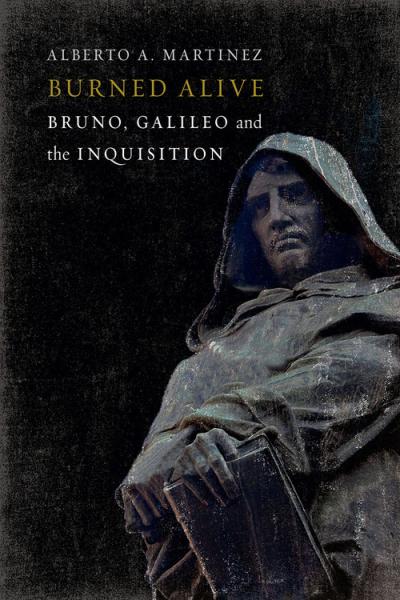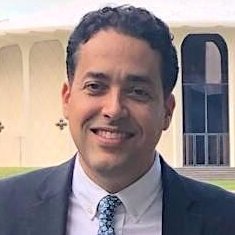
Listen to historian Alberto Martínez as he discusses the ways in which the visionary discoveries of Giordano Bruno were unfairly discredited and excised from history in a centuries-long campaign against the heterodox philosopher and cosmologist.

Listen to historian Alberto Martínez as he discusses the ways in which the visionary discoveries of Giordano Bruno were unfairly discredited and excised from history in a centuries-long campaign against the heterodox philosopher and cosmologist.
In this episode of Perspectives, we speak with Alberto Martínez, author of Burned Alive: Bruno, Galileo and the Inquisition.
In his book, Alberto Martínez reevaluates the life, career, and death of Giordano Bruno, the philosopher and cosmologist burned alive by the Catholic Inquisition in Rome in 1600. Martínez demonstrates that it was not his heterodox religious beliefs that led to his condemnation, but instead his visionary scientific beliefs—that the Earth moves, and that there are many worlds other than our own—that led to his demise. Dr. Martínez discusses the contrasting ways in which Bruno and Galileo were dealt with by the Inquisition, and shows how they drew upon the insights of prior thinkers to inform their own views about the heavens and the earth. He finishes by discussing the immense power the Catholic Church has had over the construction of knowledge, and how it influences our collective memory of people like Giordano Bruno.
This podcast features a number of questions for Dr. Martínez from two readers, Lisa Nocks and Vivion Vinson.
To cite this podcast, please use footnote:
Alberto Martínez, interview, Perspectives, Consortium for History of Science, Technology and Medicine, July 27, 2021, /video/123.
 Alberto Martínez is Professor of History at the University of Texas at Austin. He teaches courses on the history of science, mathematics, race, biology, and religion, and has published six books and many articles in both scholarly journals and for newspapers and magazines.
Alberto Martínez is Professor of History at the University of Texas at Austin. He teaches courses on the history of science, mathematics, race, biology, and religion, and has published six books and many articles in both scholarly journals and for newspapers and magazines.
Closed-captioning available on Youtube.
The Consortium's collections provide many opportunities to learn more about Giordano Bruno, Galileo, the Catholic Church, and the history of science and religion.
Our cross-institutional search tool allows researchers to investigate materials across multiple institutions from a single interface. With more than 4.4 million catalog records of rare books and manuscripts, the Consortium's search hub offers scholars and the public the ability to identify and locate relevant materials.
On the infinite universe and worlds, by Giordano Bruno, Wellcome Collection
Correspondence relating to Dorothea Waley Singer's research for Giordano Bruno, his Life and Thought, Wellcome Collection
Geschichte des lebens & der schriften des Galileo Galilei, von Christian Joseph Jagemann [1787], Caltech
Diologo di Galileo Galilei Linceo matematico sopraordinario dello studio di Pisa, Galileo Galilei, New York Academy of Medicine
Giordano Bruno: philosopher and martyr: two addresses, by Daniel Garrison Brinton and and Thomas Davidson, Yale University
Tricia Ross, Care of Body, Cure of Souls: Medicine and Religion in Early Modern Germany
Nabeel Hamid, Being and the Good: Natural Teleology in Early Modern German Philosophy
Andrew Berns, The Bible and Natural Philosophy in Renaissance Italy
© 2026 Consortium for History of Science, Technology and Medicine | Copyright Infringement